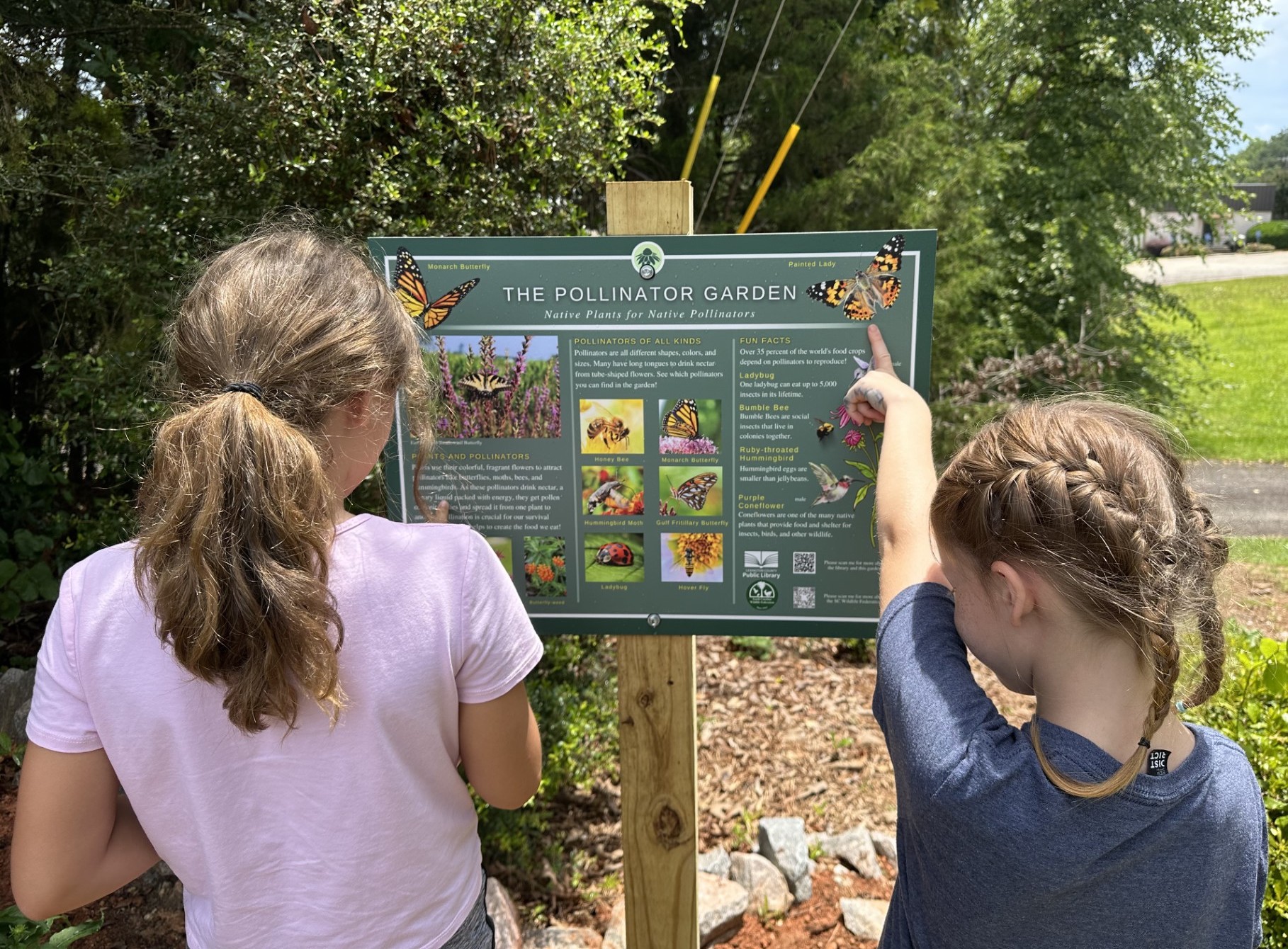

We have a little garden,
A garden of our own,
And every day we water there
The seeds that we have sown.
We love our little garden,

Chapin Branch Library is planting a pollinator garden. After receiving our Certified Wildlife Habitat® status from the South Carolina Wildlife Federation, we looked around and asked what else we could do to promote lifelong environmental learning. So much of our food comes from flowering plants — apples, cucumbers, watermelons, nuts and so much more. Crops depend on our wildlife friends to pollinate the flowers while they search for food. I learned this firsthand when a failed pumpkin patch never produced a single pumpkin. The vine was there, and flowers bloomed, but with no pollinators, no pumpkins grew.
The library has a grassy picnic spot to relax, have a snack, watch the train or enjoy our beautiful sunny weather. We have decided to enhance the area with native plants and a caterpillar garden to share with children of all ages. We’re just getting started and are excited to see what sprouts. Native plants are vital to our pollinator friends and essential to us all. After talking with the Chapin Garden Club, consulting with the South Carolina Wildlife Federation and learning from the Master Gardeners, we created a plan.
Our wild pollinators, such as butterflies, bees, moths, birds and bats, are in trouble due to habitat loss, disease, pesticides and other factors. Therefore we must educate ourselves and care for our planet and fellow creatures. By creating a habitat at the library, we are doing our part to turn the tide and help our flying friends. This year’s Summer Reading Challenge theme could not be more perfect, as we learn from Mother Nature about caterpillars, butterflies, planting, growing and getting dirty All Together Now.
Gardening has so many advantages. First, it is excellent for your mental health. Soil has minerals that are natural antidepressants, so getting your hands dirty makes you happy. It teaches you patience and perseverance. There is nothing like planting a tiny little seed, watering and cheering for it, loving and nurturing it, and watching it sprout from the dirt. It is a great learning experience and a first step to having a pet and raising children.
We hope you stop by and check out our garden. But in the meantime, you can check out some of these great books.
[INSERT_ELEMENTOR id=”112550″]
[INSERT_ELEMENTOR id=”112572″]